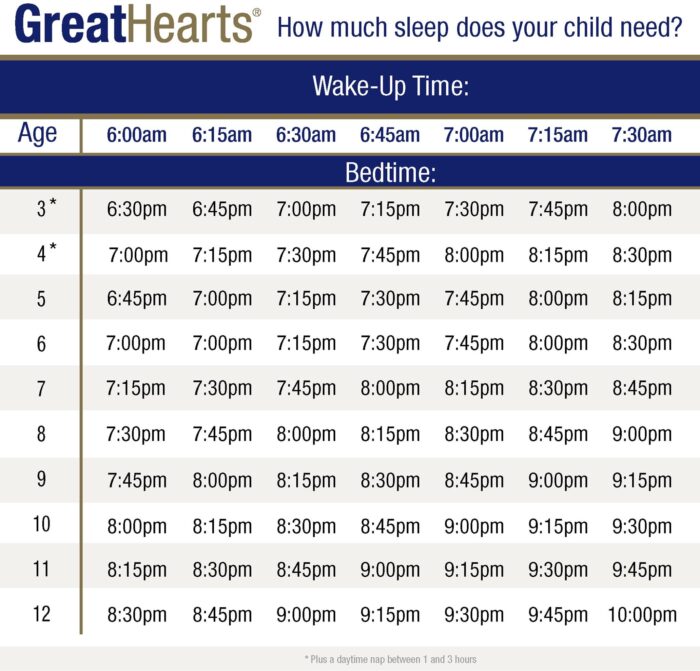Back-to-School Bedtime Routines and Strategies for Parents
Great Hearts Academies July 19, 2024 -
As summer break draws to a close, the countdown to the new school year begins. For parents, this means ensuring uniforms still fit, school supplies are ready, and calendars are filled with upcoming school events. Re-establishing daily routines, especially those discarded during summer break, becomes essential. One of the most challenging but crucial transitions for our scholars is adjusting their bedtime to ensure they get the necessary amount of sleep. To set the stage for a successful school year at Great Hearts, the time to start adjusting bedtimes is now.
The CDC emphasizes the importance of sleep for overall health. Proper sleep supports brain growth, recovery, and boosts the immune system. Over the summer, many children have enjoyed sleeping in and staying up late. Now, parents face the challenge of reversing these habits to ensure children wake up on time, fully dressed, fed, and ready for the school day.
This transition can be mentally, emotionally, and physically exhausting. Lower grade teachers say negative behaviors and tantrums often stem from being overly tired. Students might behave well in class but become a sobbing mess at home before dinner.
Experts suggest that if a child resists bedtime, it might be too late, and they are already overtired. They recommend gradually moving bedtime earlier by 30-60 minutes until you find a time with the least resistance. Unlike adults, children often exhibit exhaustion through hyperactivity or volatile emotions rather than recognizing they are tired.
Sleep is equally important for upper school students. The CDC recommends 8 to 10 hours of sleep per night for youths aged 13-18. However, studies show that 57.8% of middle school students and 72.7% of high school students do not get enough sleep on school nights.
Managing a teenager’s sleep schedule can be particularly challenging. The CDC offers these recommendations for parents:
- Model and Encourage Good Sleep Habits: Set a regular bedtime and rise time, even on weekends. Adolescents with parent-set bedtimes generally get more sleep.
- Dim Lighting: Reducing light exposure, including from electronics, in the evening helps promote better sleep.
- Implement a Media Curfew: Limiting technology use (computers, video games, mobile phones) before bed can prevent late bedtimes. Consider banning technology use after a certain time or removing these devices from the bedroom.
For minor bedtime adjustments, a few days might be enough to transition before the first day of school. However, if your child’s sleep schedule has significantly changed over the summer, start making changes now. We have provided a simple sleep chart by age to assist you.
Transitioning back to school can be exhausting, especially for a child who is both excited and nervous. By ensuring our scholars get the rest they need, we can help them be their best selves every day.
Do you have a story or know of one you’d like to see featured at Great Hearts? Please contact jason.moore@greathearts.org.

